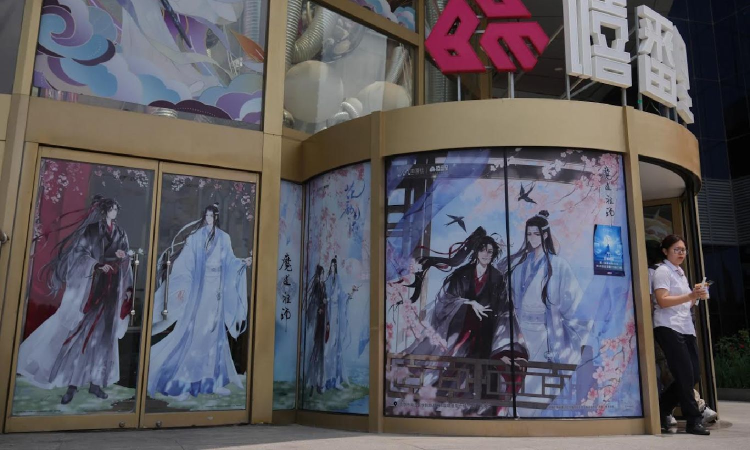Cultural control: China’s crackdown silences female danmei dreamscapes
Danmei—created largely by female writers and consumed mostly by straight female readers—uses male-male romance as a way to imagine relationships outside traditional gender expectations.

For years, many young Chinese women found escape and pleasure in Danmei, a genre of online fiction centered on romantic relationships between men. To fans, these stories offered both fantasy and emotional refuge. But over the past year, readers and writers say the genre has been hit by its most sweeping suppression yet, as Chinese authorities intensify efforts to police LGBTQ-related content and reshape online culture.
Danmei—created largely by female writers and consumed mostly by straight female readers—uses male-male romance as a way to imagine relationships outside traditional gender expectations. Scholars note that these stories let women picture love unburdened by the pressures of marriage, childbirth, and unequal domestic roles. Despite official unease around LGBTQ themes, the genre has exploded in popularity, spawning bestselling novels, blockbuster TV dramas, animation, and video games. International translations have drawn large global communities as well.
That growth has not protected creators. Writers say they have removed work or stopped publishing; major platforms have shut down or purged much of their content, leaving only sanitised stories behind. Fans describe losing the few online spaces where they could explore desire, intimacy, and emotional freedom.
For some writers, producing Danmei offered joy and agency. Several authors say that crafting fictional worlds gave them a sense of power they lacked in their daily lives. But that sense of safety has evaporated. China has tightened controls over LGBTQ expression for years—closing advocacy groups and deleting online accounts—despite decriminalizing homosexuality decades ago. While same-sex relationships are legal, portrayals of them often run afoul of censorship rules tied to “obscenity,” “improper values,” or “unhealthy” youth culture.
Even mainstream Danmei adaptations face constraints, typically by reframing romance between male leads as deep “brotherhood” or heterosexualizing the story altogether. Still, hugely successful titles such as Heaven Official’s Blessing and Grandmaster of Demonic Cultivation reached global bestseller lists—though their author was imprisoned in 2020 for charges tied to selling self-published erotic material, a case that sent a chilling message to other creators.
More recently, writers have reported detentions and interrogations in Lanzhou, though these accounts could not be independently verified. Officials offered no comment. Regardless, the reports spread fear: many authors worry that even minor infractions could stain their records and harm their futures.
The crackdown’s effects now reach beyond mainland China. Haitang, a major Taiwan-based platform popular among mainland readers, temporarily shut down and urged writers to comply with laws wherever they lived, returning later with sharply reduced content. Another widely used site, Sosad.fun, closed entirely. Readers discovered that even archived stories vanished without explanation.
While Danmei has not disappeared from China, fans say the surviving works are noticeably toned down, with explicit scenes removed and the most talented authors either silenced or publishing elsewhere. Some writers now release new work overseas, relying on readers to smuggle digital or paper copies back into the mainland. Others have migrated to Japanese and Korean comics to satisfy the romantic and erotic elements they can no longer find locally.
Despite the repression, scholars argue that women’s shifting expectations—about desire, autonomy, and the right to imagine alternatives—are unlikely to be reversed. The cultural awakening that fueled Danmei’s rise, they say, cannot easily be censored away.
Associated Press



